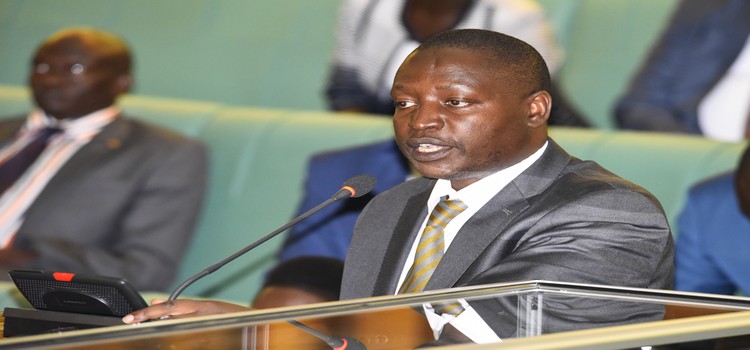
Parliamentary aspirants and voters in six new districts that became effective at the start of the 2018/2019 financial year will have to wait longer for elections as government has declared that it has no money to conduct elections in those administrative units.
The districts: Nabilatuk, Bugweri, Kasanda, Kwania, Kapelebyong and Kikuube were created during the 9th Parliament and became effective on July 1, 2018. Elections for district women representatives and local government administration were supposed to be carried out thereafter.
The Minister of State for Finance (Planning), Hon. David Bahati, told Parliament that they had written to the Electoral Commission asking whether the body can hold the elections using their original budget for the current financial year, but had got no response from the electoral body yet.
“Parliament did not budget for this item [elections], we are finding it difficult to conduct elections in these districts,” said Bahati during the plenary sitting chaired by the Deputy Speaker, Jacob Oulanyah, on Tuesday 26 March 2019.
“We are consulting with the Attorney General and others to see if they can be held next year. At the moment there are no resources to conduct the elections, he added.
The September 2015 resolution also created seven other districts of Obongi, Kazo, Rwampara, Kitagwenda, Madi-Okollo, Karenga and Lusot to become effective on July 1, 2019.
The short statement by the Minister however riled legislators, who questioned why government created the new administrative units but failed to budget for elections of their representatives.
Hon. Joy Atim Ongom (UPC, Lira district) said that the old or mother districts have not budgeted for the new ones since they became effective at the start of the current financial year. She cited Kwania, which is already advertising for positions in the local government.
Hon. Muhammad Nsereko (Ind., Kampala Central) wondered what services were taken to people in the new districts as claimed by government when the entities are being created.
“Right now the fundamental services required by those people are representation, administrative and governance. What services are being extended to the new districts?” Nsereko said.
Hon. Kassiano Wadri (Ind., Arua Munic.) said that government was quick in moving motions to create the new administrative units, but warned that people in those areas where elections have not been held could end up going to court over failure to elect their representatives.
The Deputy Speaker, Jacob Oulanyah, faulted government for failing to meet its own undertakings, having requested to phase the operationalization of the entities but failing to budget for them in annual budgets.
“These were government resolutions; you said you were ready to proceed this way [phasing the start of the districts], what is the problem?” he said, adding “This was not done at short notice. It was your work plan which should have been accommodated.”
Minister Bahati implored members to wait for the budget for the 2019/2020 financial year in which provisions for the elections will be made.
“Three months is not a long time, we shall budget for the elections. In the meantime, we shall consider if in future we will hold all the elections at once,” he said.
